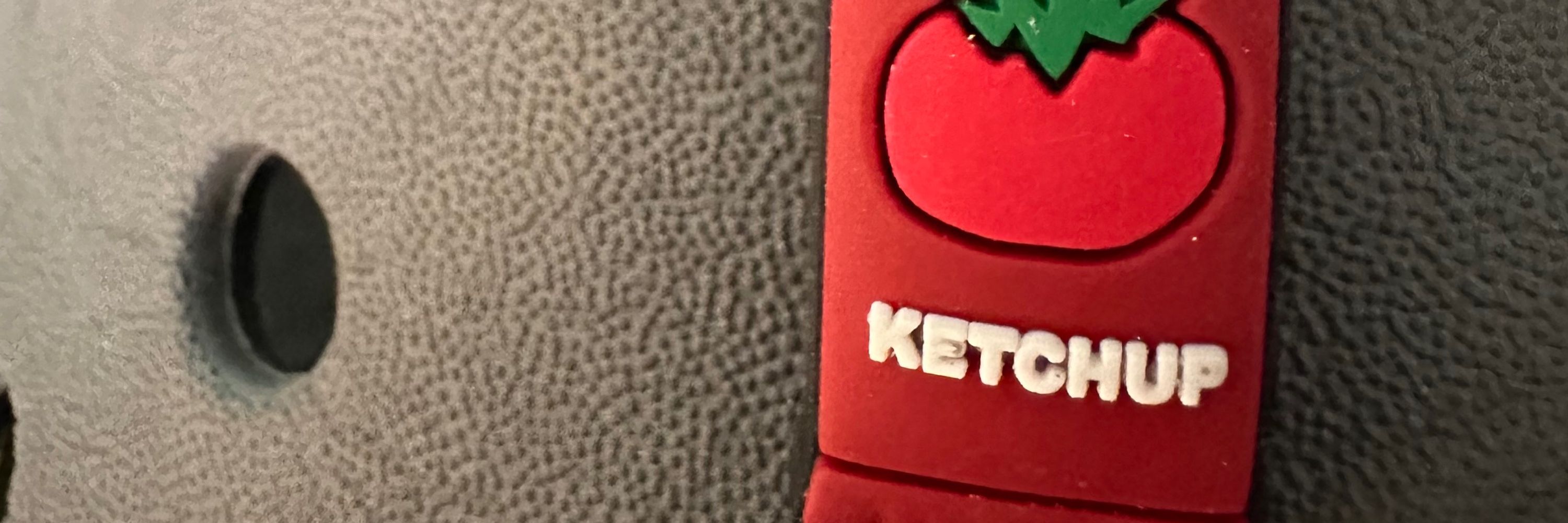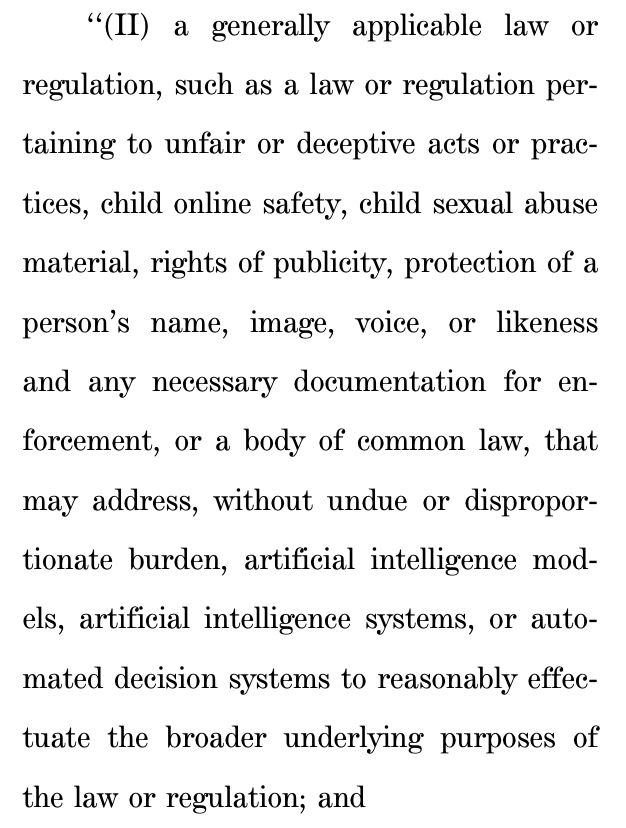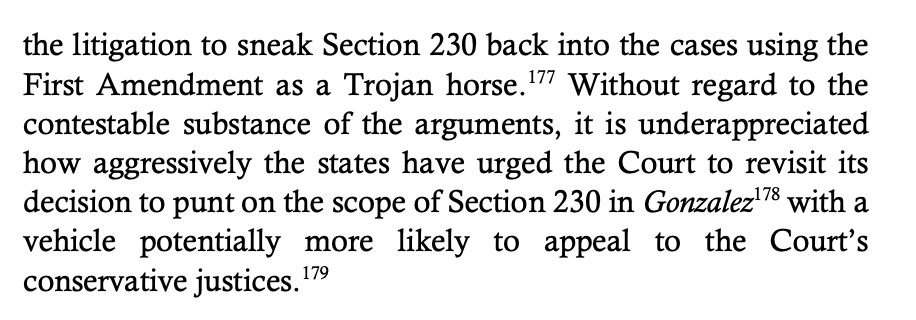








Wired: replacing one word with big word salad that will now be litigated in every state law case nominally involving a computer and a decision

Wired: replacing one word with big word salad that will now be litigated in every state law case nominally involving a computer and a decision









![There is an inescapable information asymmetry between users and search engines. No one setting out on a journey of en- lightenment knows what lies at the end of the road—if she did, there would be no need of the journey. The user knows more about what she wants, whether it be free online calculus practice questions] or (brinty spiers toplessl, but the search engine knows far more about whether anyone has put practice questions](https://cdn.bsky.app/img/feed_thumbnail/plain/did:plc:3h2rnhl4eqtoylezk6572ec2/bafkreibq3b4tw2lfbqmqvyydzad5bpzjaqfrj3b7vmv5t34ydaoxg6oytq@jpeg)













![the district court’s conclusions about preemption of the carriage
provisions.171
As for the Texas law, the district court offhandedly
acknowledged but did not address the platforms’ Section 230
preemption arguments.172 Before the Fifth Circuit, the platforms
briefly reasserted that Section 230 preempted H.B. 20, but
declared that there was “no need for [the Fifth Circuit] to address
[Section 230 preemption].”173 The Fifth Circuit castigated the
platforms for addressing preemption so briefly, concluding that
the treatment was “insufficient to adequately brief [the] claim”
and that the platforms had “forfeited their preemption
argument.”174 Yet even if the Fifth Circuit’s ruling on preemption
in Paxton itself holds following the Supreme Court’s ruling, the
possibility remains that platforms will be able to reassert Section
230 preemption in future facial or as-applied challenges.
Finally, the proceedings underscore that Florida and
Texas did not undertake aggressive efforts to pay down Section
230’s legislative debt in ignorance of the possibility that Section
230 might preempt their laws even if they shot the moon on the
First Amendment with the Supreme Court. Both Texas and
Florida aggressively urged the courts from the early stages of
both Moody and Paxton to narrow the scope of Section 230.175
And while the Supreme Court’s grant of certiorari in the
NetChoice cases nominally is limited to questions about the First
Amendment,176 both Florida and Texas have sought throughout](https://cdn.bsky.app/img/feed_thumbnail/plain/did:plc:3h2rnhl4eqtoylezk6572ec2/bafkreier3ljsfsyq76ykciqu7h6uquzrotczexbla6sc74omnnyzvxgtfe@jpeg)











